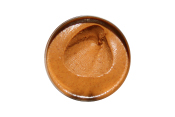Avoiding Peanuts Products Might Not Be Best Choice for Parents
Author: tiger Published Under: Health

Up until very recently, doctors in the United States had advised against giving peanut products to children during infancy. It was also advised for the mother to avoid eating peanuts during pregnancy and breastfeeding. In the UK and Australia, this is still the recommendation. This practice is thought to prevent the risk of contracting peanut allergy, but a new report seems to indicate that this practice might actually increase the risk of peanut allergy.
Peanut Allergy is a very common type of food allergy. Currently, around 1% of the population is allergic to peanuts. This includes both adults and children, but about a quarter of all allergic children grow out of their peanut allergy. Those who are allergic to peanuts aren’t necessarily allergic to nuts. This is because a peanut is technically a legume, while a nut is classified as a fruit. This means someone can be allergic to nuts without being allergic to peanuts.
Those who are allergic to peanuts have to be very careful what they eat and in some cases come in contact with. An allergic reaction can consist of diarrhea, vomiting, asthma, or anaphylactic shock. Peanuts are used in many things, so there is a need for an allergic person to be extremely vigilant at all times. Between 2001 and 2006, over half of the deaths as a result of a food allergy, were peanut allergies.
In a report released in the October volume of The Journal of Allergy and Clinical Immunology last month, researchers found that avoiding peanuts during infancy might not be the best choice. In the past ten years, the amount of people with peanut allergy has doubled, with half of these individuals developing their allergies during childhood.
This study, led by George Du Toit and Yitzhak Katz, compared the frequency of peanut allergy in Israeli and Jewish children in the UK. They found that the Israeli children on average ate over seven grams of peanut butter by the time they were eight months old. This is compared to the UK children, which on average consumed 0 grams of peanut butter in their first eight months of life. The children in the UK were ten times more likely to have a peanut allergy.
The reason that Jewish children were used is because genetically, they were very similar to the Israeli children. Their environments were also similar, with neither group having a noticeable difference in factors such as dust mites or hygiene.
The only major difference is that the Israeli children had been exposed to peanut butter. Given that the Israeli children were much less likely to have a peanut allergy, doctors concluded that exposing children to peanuts at an early age might not be such a bad idea.
Currently another study is in progress that is attempting to confirm this finding. As with anything, you should check with your doctor first and ask about peanut allergies and what steps you should take to help prevent them.